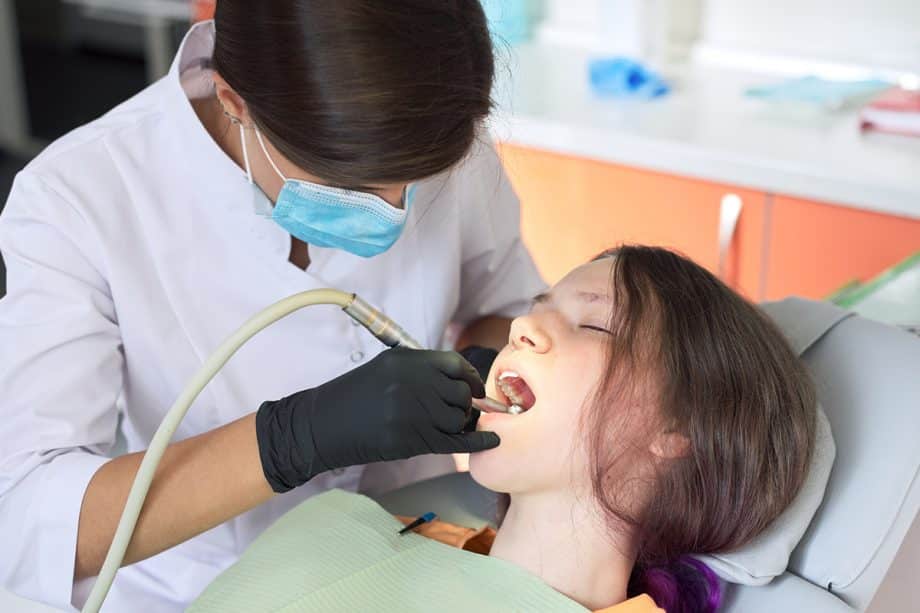At Dream Smiles, we understand that dental visits can be intimidating for children. Whether it's fear of the unknown, a previous bad experience, or simply sensory sensitivities, it's not unusual for little ones to feel nervous about sitting in the dentist’s chair. That’s where sedation dentistry comes in. As parents, you naturally want to know: Is sedation dentistry safe for children?
We want to take some time today to walk you through what sedation dentistry involves, when it’s recommended, and most importantly, the safety measures that make it a trusted option in pediatric dental care.
Understanding Sedation Dentistry for Children
Sedation dentistry refers to the use of medication to help children relax during dental procedures. At Dream Smiles, we recommend sedation dentistry in certain situations, such as when a child has extreme anxiety, special healthcare needs, or needs to undergo complex or lengthy treatments. Sedation can make dental visits a more positive, comfortable experience—one that prevents fear from building up over time.
There are different types of sedation available, from mild forms like nitrous oxide (commonly called laughing gas) to deeper levels like IV sedation. Each method is carefully selected based on the child’s age, health history, anxiety level, and the type of procedure being performed. Our team works closely with parents to ensure they are informed and comfortable every step of the way.
How We Ensure Safety in Pediatric Sedation Dentistry
When it comes to your child’s health, safety is our top priority. The good news is that sedation dentistry, when performed by trained pediatric dental professionals, is considered extremely safe. At Dream Smiles, we follow strict guidelines set by the American Academy of Pediatric Dentistry (AAPD) and the American Academy of Pediatrics (AAP).
Before any sedation procedure, we conduct a thorough review of your child’s medical history and perform a detailed physical assessment. We also explain the sedation process, including any pre- and post-operative care instructions. During treatment, we continuously monitor your child’s vital signs, such as heart rate, oxygen levels, and blood pressure, using specialized equipment to ensure they remain safe and stable.
Additionally, our sedation team is extensively trained in emergency protocols. While complications are rare, we are fully prepared to handle any unexpected situations to ensure the highest level of care at all times.
When Is Sedation Dentistry Recommended for Children?
Sedation dentistry is not necessary for every child or every dental procedure. It’s typically recommended in specific circumstances where it can significantly improve the safety and success of treatment. These include:
- Children who experience intense dental anxiety or fear that cannot be managed through behavioral techniques alone.
- Young children who may not understand how to cooperate with dental instructions.
- Children requiring multiple procedures at once or more complex restorative work.
- Children with special healthcare needs who may find traditional dental visits overwhelming.
Choosing sedation is never a decision we take lightly. We discuss all options with parents in detail and tailor our approach to your child’s individual needs. If you’d like to learn more about our approach to sedation dentistry, we’re happy to answer any questions you may have.
What Parents Should Know Before and After Sedation Dentistry
Preparing your child for sedation dentistry starts at home. Prior to the appointment, we’ll provide you with specific instructions about when your child should stop eating or drinking. Following these guidelines is crucial for their safety during sedation.
After the procedure, children may feel drowsy or disoriented for a few hours as the sedation wears off. We advise parents to keep their child home for the rest of the day, monitor them closely, and encourage plenty of rest. Some children may experience mild side effects such as slight nausea or grogginess, but these typically resolve quickly.
Our team will give you detailed post-sedation care instructions to help your child recover smoothly. We’ll also schedule follow-up communication to check in and ensure everything is progressing normally.
Frequently Asked Questions About Sedation Dentistry
Is sedation dentistry safe for all children?
For the majority of healthy children, sedation dentistry is very safe when administered by trained pediatric dental professionals. However, not every child is an ideal candidate. Children with certain medical conditions may require additional evaluation or consultation with their primary care physician before sedation is recommended. At Dream Smiles, we carefully assess each child's individual needs and health history before proceeding with any sedation.
What type of sedation is most commonly used for children?
Nitrous oxide, also known as laughing gas, is the most commonly used sedation method for pediatric patients. It is considered extremely safe, wears off quickly after the procedure, and allows the child to remain awake and responsive while feeling calm and relaxed. In cases requiring deeper sedation, oral sedation or IV sedation may be considered, but these are used only when appropriate and under strict monitoring guidelines.
At Dream Smiles, we specialize in creating positive dental experiences for children of all ages in the Gaithersburg community and beyond. Our caring team offers preventive, restorative, and sedation dentistry services to help every child smile with confidence. Contact us today to schedule an appointment—we look forward to welcoming you to our dental family!

